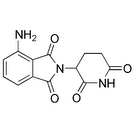Single-Agent Actimid And Combination Actimid-Dexamethasone Regimens Are Promising Treatments For Relapsed Myeloma (ASH 2009)

At the upcoming meeting of the American Society of Hematology (ASH), there will be several presentations about Actimid (pomalidomide). Actimid, a new drug being developed by Celgene Corporation as a treatment for multiple myeloma, is a molecular derivative of thalidomide (Thalomid).
Actimid As A Combination Therapy With Dexamethasone
One of the ASH presentations will show that the combination regimen of Actimid and low-dose dexamethasone (Decadron) is an effective treatment for relapsed multiple myeloma.
Actimid was tested in combination with dexamethasone in 34 patients with relapsed myeloma following therapy with Revlimid (lenalidomide). Patients were given 2 mg of Actimid daily and 40 mg of dexamethasone on days 1, 8, 15, and 22 of a 28-day cycle. All patients also received 325 mg of aspirin daily to prevent the formation of blood clots in deep veins.
Twenty-six percent of patients responded to the treatment. A median follow-up time of four months revealed that 65 percent of patients remained progression-free, 88 percent survived, and 12 percent died from progressive myeloma.
Myelosuppression was the most frequent side effect, consisting of severe to life-threatening low white blood cell counts in 21 percent of participants, severe low red blood cell counts in 12 percent, and severe low platelet counts in 9 percent. Additionally, 18 percent of patients experienced mild or moderate neuropathy.
Actimid As A Monotherapy
Results from another study that will be presented at ASH show that Actimid as a single agent produced a positive long-term response in relapsed multiple myeloma patients. In this study, Actimid was examined as a single-agent therapy in 44 patients with relapsed myeloma following therapy with Revlimid.
Previous studies have indicated that the maximum tolerated dose for Actimid is 2 mg daily or 5 mg on alternating days. In this study, a range of Actimid doses were used from 1 mg on alternate days to 10 mg daily. Patients with progressive disease were also eligible to receive 10 mg of dexamethasone in addition to Actimid. The median duration of treatment was 9.3 months.
Fifty-two percent of patients responded to Actimid treatment, with 14 percent achieving a complete response. The median time for progression-free survival was 13.7 months and for overall survival was 28 months.
For more information, see abstracts 429 (Actimid-dexamethasone combination), 3878 (Actimid monotherapy), and 301 (Actimid dosing) at the ASH meeting Web site.
Related Articles:
- None Found

We have been reading about Pomalidomide for over two years. Any idea as to when they will seek FDA approval and get it to market? There are many people with MM that need this and other new meds to live.
Tahnk you,
Janice Schmeeckle
Dear Janice,
Actimid (pomalidomide) is still undergoing Phase 2 clinical trials for evaluation of its safety and efficacy for the treatment of multiple myeloma. A timeline has not yet been announced to indicate when Celgene, it's manufacturer, will apply for FDA approval. We will keep you posted at The Myeloma Beacon when more information becomes known.
Best,
Jessica Langholtz
Has actimid been approved yet???
It is 2012 now ...is it on the market???
Get new Myeloma Beacon articles by email.